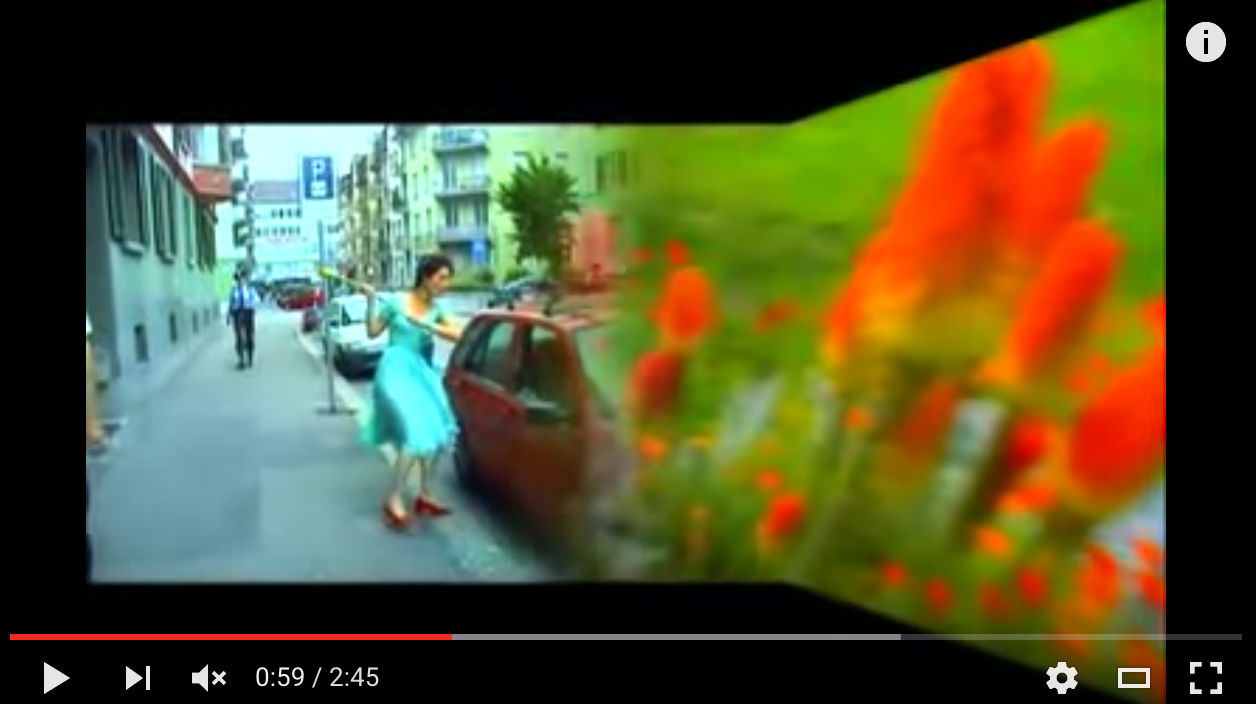Pipilotti Rist

When a woman wants to get a project going she has to use methods that go against her nature. Women do not like to admit that they are using men's strategies because they're afraid that by doing so, they are no longer sexually attractive and they have to suppress their feelings. – Pippilotti Rist
In 1997 Swiss visual artist Pipilotti Rist created a video installation titled "Ever is All Over." The mesmerizing piece consists of two separate videos, projected onto walls, side-by-side. One features a close up of flowers, gently swaying in a pastoral field. The other shows Rist, walking in slow motion, blissfully, gracefully, swinging a long-stemmed flower. With a haunting melody playing in the background, she pauses to swing the stem graceful and violently shatters the windows of cars parked on a sleepy city street. The video won her a Premio 2000 award at the Venice Biennale in 1997.
It’s impossible to view Beyonce’s remarkable Hold Up video, from the recently released video album Lemonade, without seeing Rist’s work embedded in it. Several media outlets pointed out the similarities between Rist’s video and Beyonce’s equally powerful and evocative work.
Beyoncé has said more to a mass audience about the strength, creativity and power of women, particularly black women, in the United States, than possibly any other artist today. Her work is about being in charge of her art, body and representation. Since her fierce and catalytic display of the word “Feminist” on stage during her 2014 VMA performance, she has become an avatar for contemporary feminism and for the need to pay attention to the cultural and social lives and needs of black women. The imagery of her video, however, is not only about a woman who, possibly cheated on, is angry and wielding a big stick. There is note-worthy history, extensively and explicitly feminist that needs to be acknowledged.